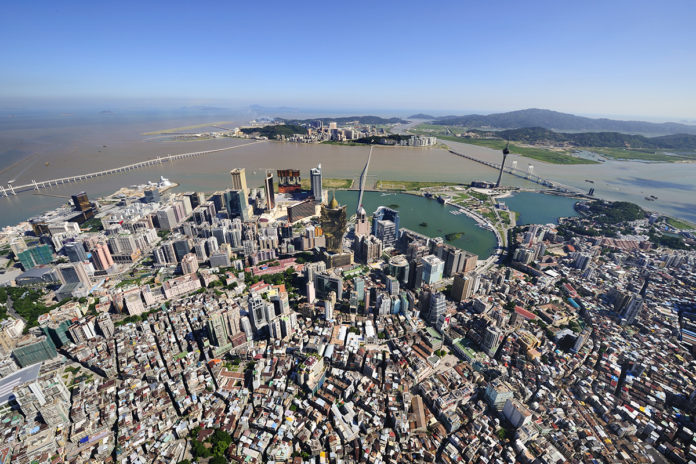The overall economic competitiveness of the Special Administrative Region is ranked ninth highest among 294 Chinese cities, reveals the Chinese Urban Competitiveness Report 2016 conducted by the Chinese Academy of Social Sciences (CASS). The report, the portion of which relates to the SAR, was released yesterday by CASS and the Macau University of Science and Technology (MUST), indicating that the city’s index of overall economic competitiveness reached 0.447 for 2015, which remained flat compared to that of 2014. Of the 294 Chinese cities – including Macau, Hong Kong and five Taiwanese cities – Shenzhen is ranked most competitive in terms of economy for 2015, followed by Hong Kong, Shanghai, Guangzhou and Taipei. Most efficient Meanwhile, the Special Administrative Region tops the index of overall efficiency competitiveness as it did for 2014. But its overall incremental competitiveness index was way behind that of most other Chinese cities, occupying 220th position. The report explained that the city’s extreme rankings in the two indexes are due to its skewed industrial structure – heavily reliant upon a single industry. ‘The dominant gaming industry has recorded significant declines as affected by different factors, whilst the city’s overall economy has entered into a deep adjustment phase. There are fluctuations in economic growth. In addition, the average increment of GDP stays at a quite low level, affecting its performance in overall incremental competitiveness,’ the report reads. Less liveable, fewer commercial advantages On the other hand, the city’s rankings in competitiveness for a liveable environment or for a business-benefiting environment both registered declines compared to 2014, due to the city’s continuing strain on capacity. Macau’s index of liveable competitiveness was 0.596 for 2015, dropping 16 positions year-on-year to 36th among the nearly 300 cities. In addition, it reached 0.398 in the index of competitiveness for a business-benefiting environment, which represents a decrease of four positions year-on-year to 32nd. ‘Macau’s capacity is being pressured due to the increasing population and the number of visitors in recent years. Housing prices are still too high for residents despite declines having been recorded. The gaming downturn and the difficulties that SMEs are facing make the city’s competitiveness decrease for a liveable and a business-benefiting environment,’ the Academy wrote in its findings. Weak scientific power In addition, the report noted that the city’s competitiveness in knowledge and information still has room for improvement, indicating that the government resources allocated for the two sectors are not enough. ‘Macau’s expenditure on science and technology, as well as that on education are quite low or even show declines…Based on the country’s pattern, cities with high competitiveness in these two sectors are ranked higher in position in their competitiveness of sustainability,’ the report claimed. Meanwhile, the SAR’s competitiveness in sustainability was the 5th highest among the cities for 2015. ‘Macau must work internally to boost its industrial diversification and strengthen its external regional co-operation due to its monopolistic economic structure, weak scientific power and the lack of development in knowledgeable economy,’ the report suggests.
—
























